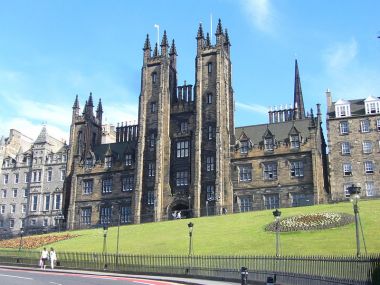Gay ordination supported by majority of Church of Scotland

The Church of Scotland has moved towards the ordination of ministers in civil partnerships, with the majority of Presbyteries voting in favour of the change.
Last year's General Assembly concluded that the Church could not condone same-sex marriages or civil partnerships, however commissioners voted in favour of a proposal that would allow individual congregations to 'opt out' of the Church's official policy on homosexuality, and could choose to employ a gay minister should a vacancy arise.
The decision has caused significant division among Christians across Scotland, and a number of congregations opted to leave the Church of Scotland; choosing instead to join the Free Church, which has a firm stance against actively homosexual clergy.
In May this year, the Assembly voted overwhelmingly in favour of a proposal that could lead to the ordination of actively gay ministers, with a majority of 369 to 189. Draft legislation was passed to the 46 individual Presbyteries to debate, before a final vote is taken at the General Assembly in May 2015.
The deadline is for Presbyteries is 31 December, but 32 have already returned their vote in favour of the move, while 14 are against. The Kirk has not yet formally announced the vote, but the news broke on the same day that same sex marriages became legal in Scotland.
Rev Scott Rennie, an openly gay minister who caused controversy when he was appointed to Queen's Cross Church in Aberdeen – a Church of Scotland congregation – has welcomed the response.
He told Kalaidoscot: "The voting figures are hugely encouraging, and shows the Kirk is moving to a supportive and helpful understanding of modern families in all their shapes and sizes.
"All over Scotland, churches that offer people an opportunity to explore spirituality in a modern and open setting are growing. The Moderator has called on us to grow our congregations – this can only help."
However, a spokesperson for Forward Together, a group for evangelicals in the Church of Scotland, warned that the vote would cause divisions in congregations across the country,
"More people are going to leave and more people are going to stop giving," Rev Douglas Cranston said.
"I know congregations where this is happening. By the very nature of the votes, it is really fairly divisive."











